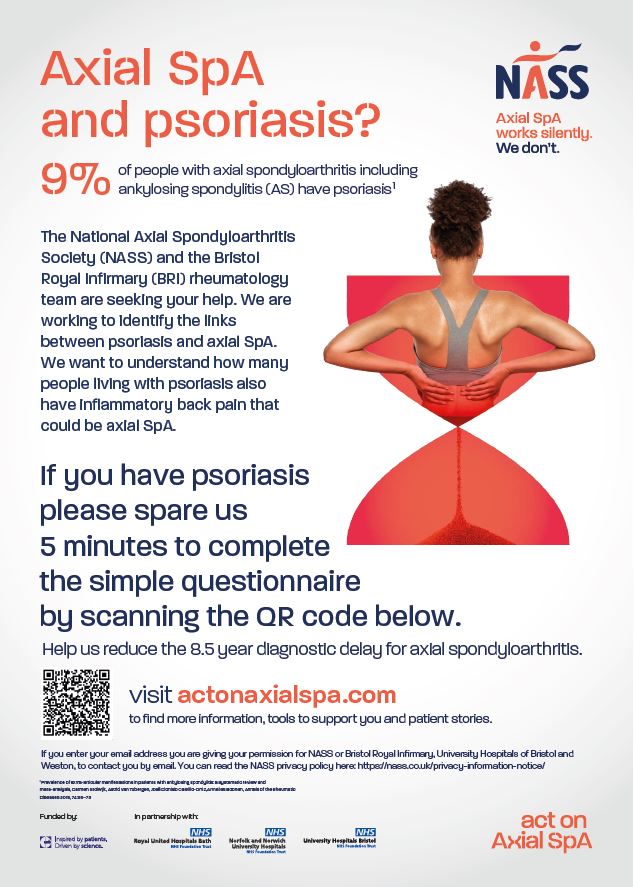Axial Spondyloarthritis
Axial Spondyloarthritis (Ankylosing Spondylitis
and related
conditions):
AS is a type of inflammatory arthritis that
tends to present in young people in the form of chronic back pain.
It can also give pain and swelling in hands, feet, arms or legs.
Heel pain in particular is quite common. Some patients suffer from
other related conditions, such as mouth and genitals ulcers,
psoriasis, inflammatory bowel disease, and inflammatory eye
disease. All these conditions have a strong correlation with the
gene HLA B27, and therefore the risk is higher if another family
member is affected. The disease starts generally in the second or
third decade, or even during the childhood. Yet some individuals
are diagnosed far later in life, as back pain is a very common
complaint. However, the pain in
axial spondyloarthritis is different from the common 'mechanical'
back pain. It typically improves with exercise and
anti-inflammatories, and tends to worsen after long periods of
rest, with prolonged morning stiffness. A person with suspected
axial spondyloarthritis should be referred to a Rheumatologist to
confirm diagnosis and learn what treatments can be offered.
Treatment involves physiotherapy and exercise, medications, and
education on how to self-manage in periods of more pain and
limitation. Physiotherapists play a key role in management of this
condition.
More information for patients:
National Ankylosing Spondylitis Society (NASS):
https://nass.co.uk/
Versus Arthritis: Ankylosing Spondylitis and related
conditions.
https://www.versusarthritis.org/about-arthritis/conditions/ankylosing-spondylitis/
More information for health professionals:
2016 update of the ASAS-EULAR management recommendations
for axial spondyloarthritis: https://ard.bmj.com/content/76/6/978?papetoc=
NICE guidelines 65: Spondyloarthrits in over 16s:
diagnosis and management:
https://www.nice.org.uk/guidance/ng65
